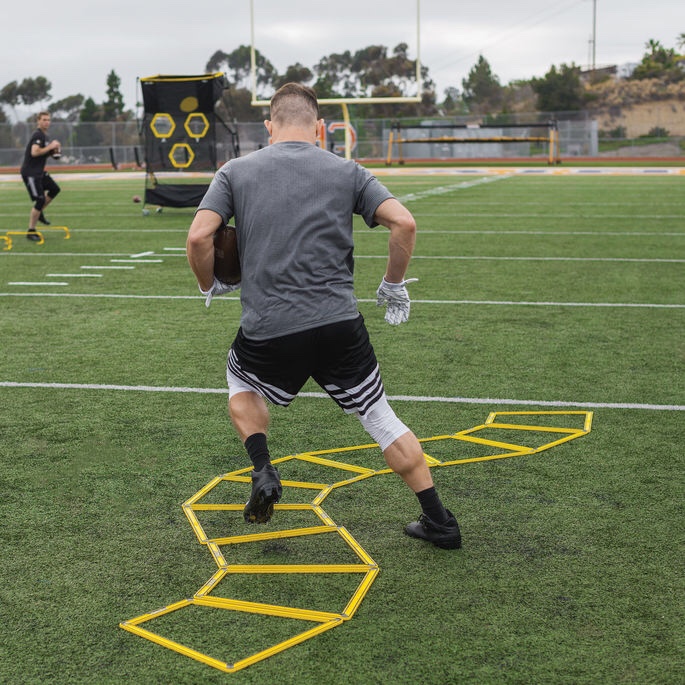
Athletes of all types rely on strength and agility in specific areas of their body in order to excel in their sport and perform at their optimum level. Sport-specific training programs are carefully crafted to focus on conditioning the body and mind to smash through the demands for endurance, speed, agility, balance and recovery required by each sport as well as minimise injury.
General strength exercises develop general muscle strength and include movements like Kb squats, Lunges and deadlifts among many others.
Special strength exercises attempt to convert general strength to power, but are still strength oriented. Most explosive lifts and movements fit into this category and include snatches, jump squats, battling rope and various kettlebell swings and exercises.
Specific strength exercises are designed to provide power improvements in a way that is very specific to the required technique of the athlete. Exercises may include plyometric exercises and sprint drills. The most specific strength exercise for any given movement is the actual movement skill itself and it is in this category where you will focus on those movements repetitively.
An important part of each of the above strength classifications are drills that help establish quickness, speed and agility for quick stops, change of direction and acceleration:
-
Sprint training such as suicides, resistance sprinting (using a resistance band) and cone drills develop explosive speed
-
Agility work often includes an agility ladder to develop quick feet
By committing to a sport-specific training program, athletes are able to practice muscle memory drills and conditioning formats that are designed to improve their overall performance in their sport while maximizing their response to and recovery from the physical demands of their sport, which are very different from sport to sport. Research conducted on golfers showed the amount of force traveling through the spine during a vigorous swing is an average of eight times their body weight. With that amount of force traveling down the spine, it’s imperative that a golf program is designed to maintain range of motion while simultaneously improving strength and stability through the core and spine.
Football on the other hand is a collision sport and requires several layers of training for both skill and power positions that includes a series of weight lifting, agility drills, plyometrics and nutrition.

A truly sport-specific exercise must:
-
Duplicate the exact movement witnessed in certain actions of sport
-
Involve the same type of muscular contraction used in the skill execution
-
Develop strength and flexibility in the same range of motion as the actual skill
An athlete will extremely benefit from this type of training, most likely seeing dramatic improvements in their level of fitness and strength. Benefits of sport-specific training include:
- Increased speed
- Increased agility
- Improved conditioning
- Injury prevention
- Gaining a competitive edge
- Increased acceleration and power
- Improved balance and body awareness
- Increased flexibility
- Increased strength
- Improved endurance and ability to quickly recover from training and competition
Sport-specific training isn’t just for extreme athletes. The more recreational or “weekend warrior” types can benefit from training routines designed for their respective sport. Runners, cyclists, Ironmen and recreational team players can train their bodies to endure physical stress for longer periods of time and recover faster, allowing them to set and reach successive goals instead of plateauing.
